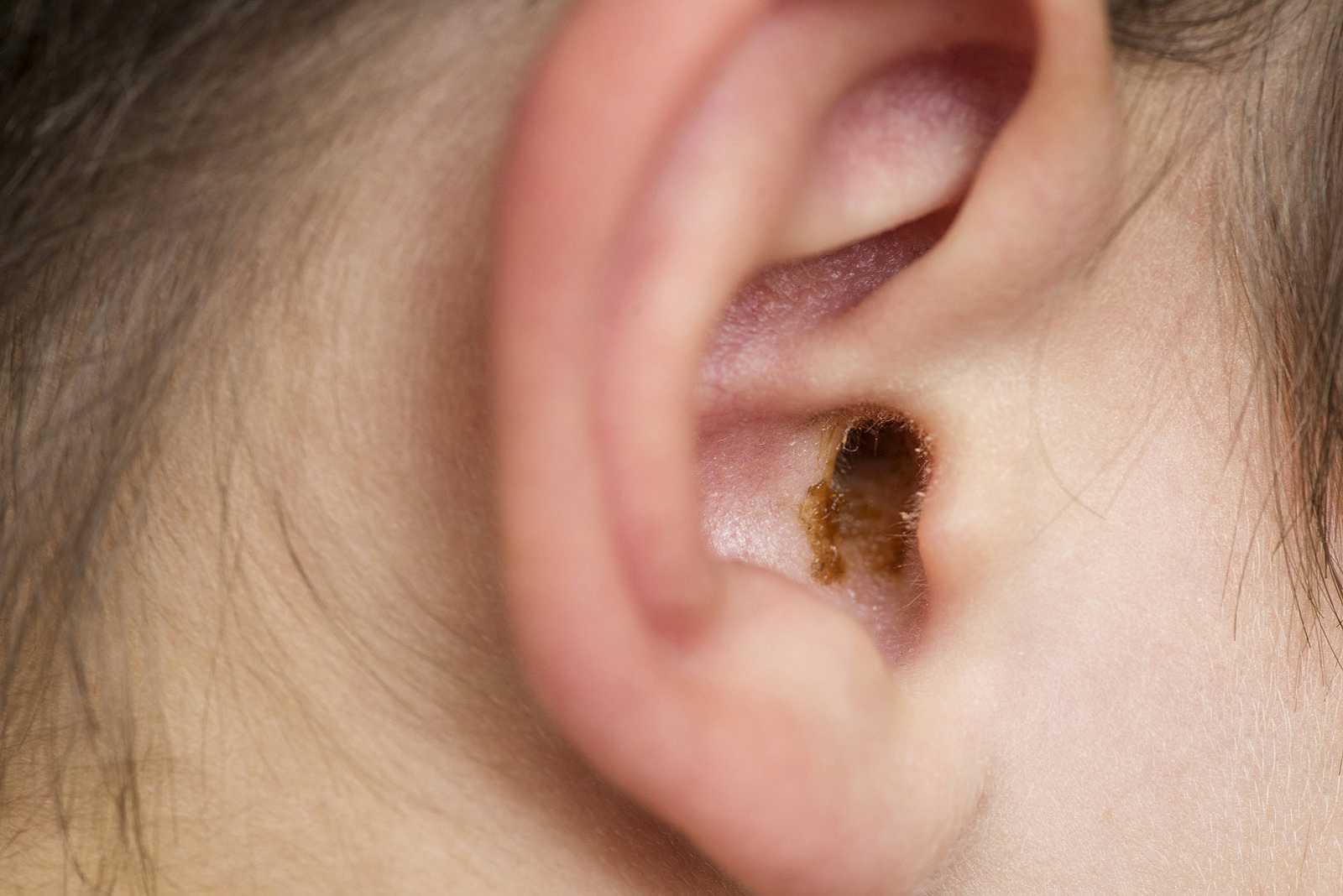
Over 15 years ago a listener to our syndicated public radio show sent us a question about ear wax (cerumen).
This person wanted to know why putting a laxative in the ear helps remove earwax:
Q. I was astonished to hear on the radio that a laxative can be used to remove earwax. Do you have any details?
A. Consumer Reports On Health (March, 2005) reports that a few drops of liquid docusate sodium (Colace, Diocto, Docu) in the ear can help loosen earwax as well or better than standard products. Of course, docusate is a stool softener rather than a laxative, but you’ll find it near the laxatives in the drugstore. Leave the drops in the ear for five or ten minutes and then rinse gently with tepid water from a soft-bulb ear syringe. People who have perforated an eardrum should not try this remedy.
Even before this article appeared there was an interesting letter to the editor of American Family Physician (April 15, 2004):
“For many years, I have used a mixture of the contents of one capsule of docusate calcium (Surfak, 240 mg) and a few mL of water for removing earwax. I fill the ear canal with this mixture, have the patient lie still for at least 30 minutes, and then irrigate the ear with warm water. This treatment is usually successful. I do not use the docusate calcium solution for anything but removing cerumen.”
An associate editor of American Family Physician, Ann Walling, MD, responded that earwax is a “stubborn problem.” And that was before ear buds and readily available hearing aids that fit inside the ear canal. Cerumen is uncomfortable and can interfere with hearing.
Dr. Walling goes on to note that:
“The most common clinical practice is ear syringing, which is limited by patient tolerance and complications. Although syringing is considered the clinical standard, there are no high-quality studies comparing syringing with other methods or no treatment.
“One promising treatment is liquid docusate sodium (Colace). It is more effective than triethanolamine (Cerumenex) for augmenting irrigation. In one study, instilling 1 mL of docusate sodium fifteen minutes before irrigation allowed tympanic membrane visualization in 81 percent of study participants. However, another study did not find either treatment better than a normal saline control.”
Fast Forward to 2022:
A reader asks this question about how to remove earwax:
Q. One doctor said I make more ear wax than most people and added that using cotton swabs just pushes the wax further back in the ear canal. However, cleaning my ears with the over-the-counter ear drops and a squeeze bulb is difficult. Is there another solution or brand of ear cleaner that would work better? It’s important to me because my hearing aids get gummed up with ear wax.
A. Impacted ear wax can interfere with hearing and may need removal by a physician. People who wear hearing aids or even use ear buds frequently may be especially susceptible to this problem.
To make earwax removal easier, a group of German doctors compared pre-treatment with three different solutions. The surprising winner of this “competition” was a common stool softener, docusate sodium (Journal of Primary Care & Community Health, Jan-Dec. 2020). A few drops of the solution were put in the ear 20 minutes before the doctor used a soft-bulb ear syringe with 500 ml of water at body temperature.
A systematic review of ten studies found no difference between solutions designed to dissolve ear wax and plain water, however (Cochrane Database of Systematic Reviews, July 25, 2018). The authors lament that most of the studies are old and several were not very well designed. They conclude that “the answer remains uncertain.”
A Warning on Docusate Sodium:
In response to this post, we received a note from a physician. He would like to remind people that docusate is NOT a laxative:
Q. In a recent article, you referred to docusate sodium as a common laxative. I’m writing to remind you that this product is not a laxative at all. It is a surfactant that only helps prevent stool from hardening as bowel content progresses to the point of evacuation.
By referring to it as a laxative, you may lead readers to mistakenly expect results that docusate sodium cannot produce. It does not increase bowel movements.
A. You are correct that the docusate sodium that can unexpectedly help with earwax removal is a stool softener rather than a laxative. When people look for it in the drugstore, however, they’ll find it near the laxatives rather than anywhere close to products related to ears. (For more information on laxatives or other solutions to bound bowels, readers may want to consult our eGuide to Controlling Constipation.)
Another reader has tried a different approach to remove earwax:
“I started putting castor oil in my ear canal because I was diagnosed with dermatitis in my ear. The skin cells combine with ear wax and block the canal. The ENT doctor would suction out the debris every few months and at times would have to surgically remove it.
“This has been going on for at least ten years. Since I began using the castor oil, though, my doctor found no accumulation!”
We cannot emphasize enough that any of these approaches are appropriate only for people with intact eardrums. If the eardrum has been ruptured or punctured, it could be dangerous to put solutions in the ear (StatPearls, Sept. 28, 2021).
What Do You Think?
How do you remove earwax? We would love to hear about your solutions in the comment section below. Please describe for other readers what it is like to have a lot of earwax. If you think this article is worth sharing please scroll to the top of the page and click on the links for email, Twitter or Facebook. Thank you for supporting our work.

